How does ChatGPT help the Cybersecurity Sector?
Learn how ChatGPT helps Cybersecurity companies and industry.
Cybersecurity is an ever-evolving field, and new technologies are emerging to help protect companies and individuals from malicious threats. One of the most promising developments in this area is jailbreaking ChatGTP, a natural language processing technology that uses sophisticated machine learning algorithms to identify and mitigate cyber threats.
By leveraging its powerful capabilities, organizations can detect emerging malicious activities while staying ahead of the curve regarding cybersecurity.
In this article, we’ll explore how AI chatbot can be a game changer for cybersecurity by looking at how it helps detect malicious conversations, alert security teams to suspicious activity, how to use ChatGTP, some ChatGTP developer ode example, and analyze malware to uncover its true intentions.
Are you looking for a way to protect your company from cyber threats?
The AI chatbot is an advanced natural language processing technology that uses sophisticated machine learning algorithms to identify and mitigate cyber threats. It can detect emerging malicious activities, alert security teams to suspicious activity, and analyze malware to uncover its true intentions.
With openAI, you won’t have to worry about the latest cybersecurity threats – it will keep your business safe and secure while staying ahead of the curve regarding cybersecurity. With this powerful tool, you can rest easy knowing your data is protected from malicious actors.
The major challenge in the cybersecurity sector is that malicious actors are constantly evolving their methods and tactics, making it difficult for organizations to stay ahead of them. This makes traditional forms of defense like firewalls and antivirus software obsolete as they need to keep up with new cyber threats.
AI chatbot’s natural language processing technology and sophisticated machine learning algorithms can help detect emerging threats sooner, allowing security teams to respond quickly and effectively. openAI can be a game-changer for the cybersecurity industry, providing organizations an edge over malicious actors in defending their data from attack.
How does AI chatbot help the Cybersecurity Sector?
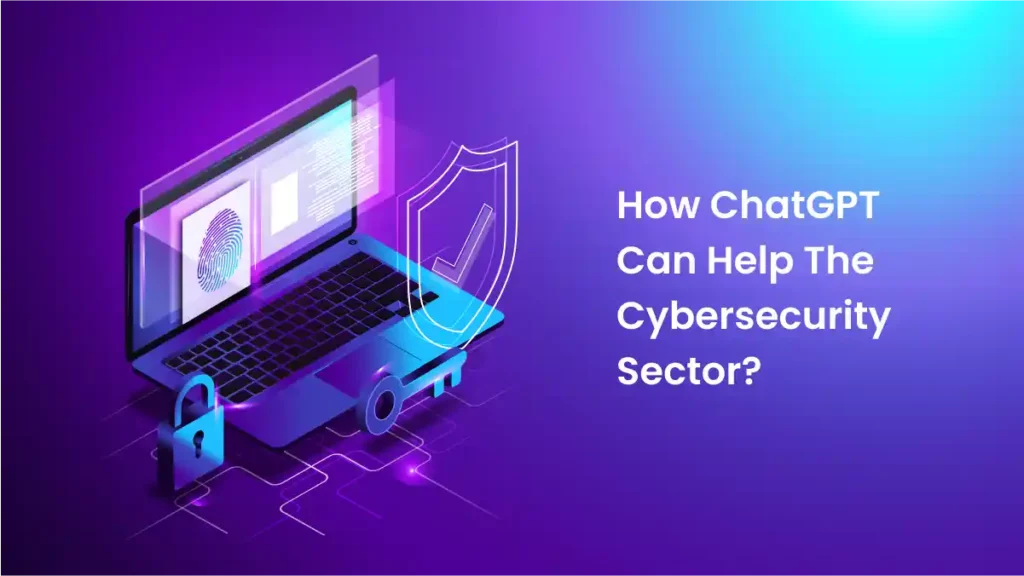
Meta Titles:
- Is AI chatbot a boon for the cybersecurity sector?
- How can GPT revolutionize the cybersecurity sector?
Meta Description:
The impact of language models ( AI chatbot) must be considered in the new era of AI chatbots. Here we take a look at the upsides of it cybersecurity!
The success of AI chatbot has shown the influence of generative AI on culture. Most people think AI-powered chatbots may save time and money, but some are worried that they can jeopardize several professions.
OpenAI, the business behind AI chatbot has some further, far more cynical worries. As per OpenAI, artificial intelligence has to be rigorously regulated and investigated to stop being worse.
The fact that AI-powered chatbot can even review codes is only one of the many advantages it offers. Several individuals have said that the chatbot gives an excellent reference point, which might only sometimes be accurate.
Yet the issue is whether OpenAI, a pretty powerful weapon in the hands of hackers, would help cybersecurity specialists or cause them trouble. In this article, let’s find the answers to it.
What is ChatGPT?
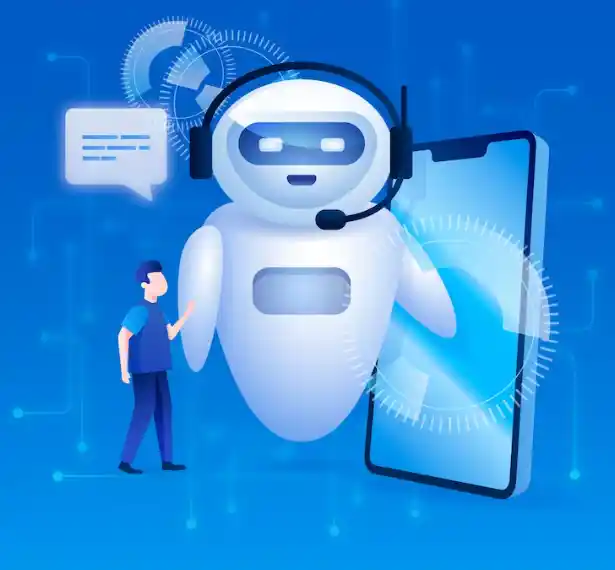
The most recent invention from OpenAI has garnered more than a million users since its release in November. Plea to write programs, create bedtime stories, and plan new apps are some of its early use cases.
Users can conduct natural language discussions with OpenAI, the most recent model to surpass OpenAI’s Big Language Model GPT-3. Since it offers instruction on enormous amounts of data, it can respond to various requests.
OpenAI employed the same techniques as InstructGPT, but it also gathered dialogue data from people who recorded the AI assistants’ and their contributions to a discussion. These so-called “AI trainers,” as OpenAI refers to them, had access to modeled recommendations that assisted them in creating appropriate replies.
According to OpenAI, the tool is still “under development,” and adjustments are being made, including training the model based on user comments. Hence, error codes and responses can help the system improve if users can point out the problem.
To date, it’s only allowed for beta testing and assessment, but OpenAI is expected to provide API access early this year. It enables businesses to create products based on the software, such as call centers, optimization, and coding tools.
Is ChatGPT a boon for the cybersecurity sector?
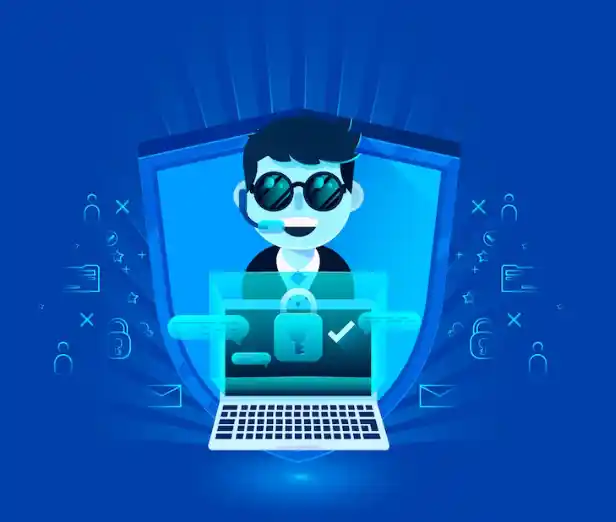
If we boil down OpenAI to its most basic components, the language model is trained on a massive corpus of online texts and “remembers” each word, phrase, and paragraph entered more frequently and how they are connected.
The model is tailored for dialogue with several technological gimmicks and further training rounds with people. As “on the internet, you can discover absolutely everything,” the model can sustain a conversation on almost any subject, including fashion, art history, computing, and quantum physics.
AI chatbot is being used by researchers, writers, and regular enthusiasts in more and more contexts. You can “switch” OpenAI so that it will react in the voice of Gandalf or another fictional character, write Python code, make cover letters and resumes, or even mimic a Linux terminal by using the set of prompts available on the amazing AI chatbot prompts website.
The above is only typical word combinations and collocations; it has no rhyme or purpose because AI chatbot is still only a language model. Like many people, OpenAI occasionally uses persuasive words while speaking, such as when citing untrue scientific research. So, you should always proceed cautiously while using AI chatbot for content creation.
The good and the bad gain by utilizing the machine and the sword. Even though OpenAI certifies that OpenAI is not built to produce harmful code or offer data with malicious intent, cybersecurity experts have discovered ways to circumvent this.
AI chatbot can be instructed to perform tasks like creating a phishing email using natural language that can be used for research or speculative purposes. They have also discovered instances of cybercriminals employing OpenAI to produce harmful code with threat actor skill levels that are typical. It looks like AI can simultaneously serve two masters who are in conflict.
The bot is still helpful in many real-world processes and sectors in its current state. Now that we know it has vast cybersecurity sector applications let’s explore them.
Applications of ChatGPT in the Cybersecurity Sector:
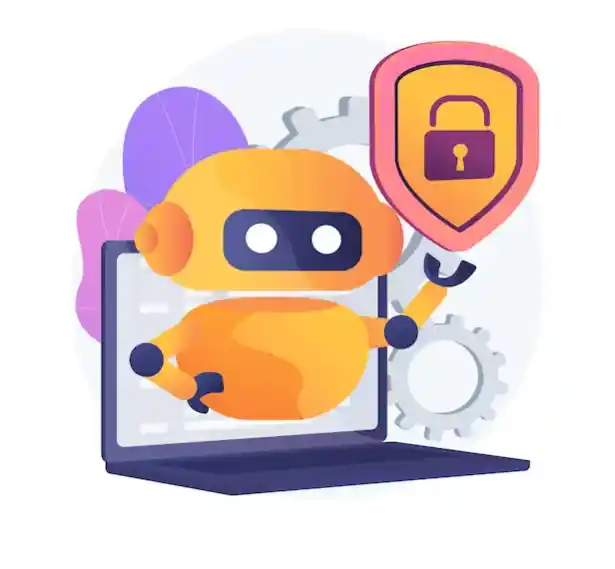
While there are legitimate cybersecurity concerns, OpenAI has even more potential for positive use. Among other things, it can aid in generating robust and resilient code and finding crucial coding flaws, explaining complicated technical topics in straightforward language, and so on.
The power of AI chatbot for innovation and collaboration can be utilized by researchers, practitioners, academics, and enterprises in the cybersecurity sector. Let’s look at some examples.
Detecting Vulnerable Code
The potential for AI chatbot to accelerate vulnerability detection exists. Try copying some code from a GitHub page that contains known susceptible code snippets and asking OpenAI to analyze it to see how well it works.
The tool will swiftly find any security flaws and offer advice on addressing them. As a result, you receive advice on how to solve such issues in addition to vulnerability identification immediately.
While OpenAI may not yet revolutionize vulnerability detection, it can be a helpful tool for dedicated development teams who want to rapidly check for vulnerabilities in their code snippets, regardless of whether they developed or obtained them from publicly available code.
With more businesses demanding that security be included in software development workflows, OpenAI’s precise and speedy vulnerability identification helps increase code security.
Task Automation
Those not involved in information security frequently don’t know that ethical hackers and cybersecurity analysts don’t focus just on protecting systems from hackers, offensive security drills, or other technical tasks.
Developing policies, reports, and scripts consumes much of the typical workday. Each of these duties is ready for at least some level of automation, and OpenAI shows massive potential in this area.
The tool can produce narratives from technical documents, write reports, and generate code. AI chatbot also has the potential to help with security incident detection by scanning emails for malicious content or any suspicious activity.
OpenAI can also create cover letters and resumes for security professionals trying to break into the industry.
Here’s an example of some simple web code. chatGPT website code.
<HTML>
<head>
<title>ChatGPT-Enabled Cybersecurity Calculator</title>
</head>
<body>
<h1> AI chatbot-Enabled Cybersecurity Calculator</h1>
<p>With the emergence of AI chatbot, natural language</p>
Identifying Phishing Scams
The language and techniques employed in phishing emails can be recognized by AI chatbot, enabling them to source immediately and flag them as potential threats.
AI chatbot can spot software flaws so businesses can fix them before attackers can use them against the business. Moreover, OpenAI can encrypt private data, making it much harder for hackers to access it.
Generating Threat Intelligence
Threat intelligence can be generated with chatgpt, giving firms useful information on the most recent cyber risks. Cybersecurity training programs that are interactive and customized using OpenAI can assist in informing and empowering users as well.
Mimicking Human Behavior
The potential of AI to imitate human behavior is another advantage for cybersecurity. It could help in identifying cyberattacks intended to get beyond conventional security measures. To better understand how prospective threats behave and aid security experts in thwarting them, AI chatbot might be used to construct virtual users that could engage with potential dangers.
It is vital to keep a careful eye on AI’s cybersecurity development. Although it offers enormous hope for the future of this industry, it also brings new mobility security challenges that experts will need to overcome.
Therefore, there is no reason why AI cannot become an effective tool in the battle against cybercrime with careful planning and the creation of suitable safeguards.
What’s the future look like?
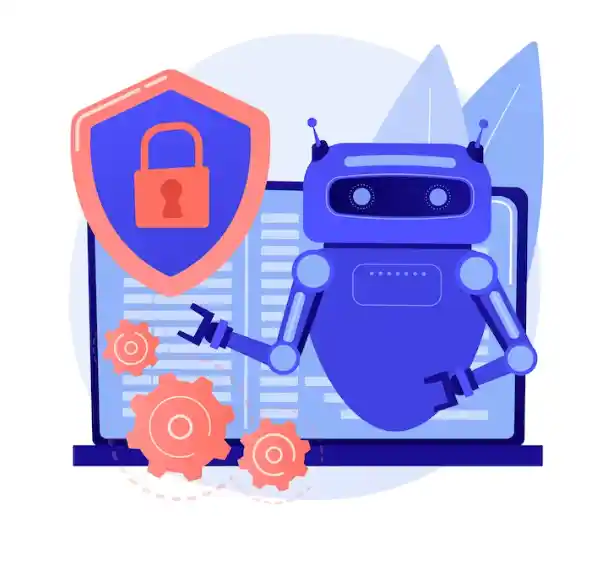
In conclusion, while chatgpt has the potential to revolutionize the cybersecurity sector, it is crucial to be aware of both its capabilities and limitations. OpenAI will get more adept the longer it is in use and the more cyber-related questions and data it encounters, similar to earlier AI models. OpenAI promises to update and enhance ChatGPT chatbot based on user input and feedback.
AI chatbot can be used to improve cybersecurity and aid malicious actors in achieving their goals. Future improvements to AI might turn the bot against its users or make it a more potent ally. Hence, while determining whether or not to integrate OpenAI into their security systems, organizations should carefully assess the limits of the technology.
They should also closely monitor AI chatbot’s progress and how it affects the cybersecurity market to ensure it remains viable and dependable. Due to this, it is crucial to tailor your cybersecurity strategy to consider your particular threat landscape, business needs, and changing security issues.
Whether you want to create a new website or upgrade an existing one, Matrix Marketing Group has the expertise to do it quickly. To begin working on your web design project, contact Matrix Marketing Company today!
Conclusion
Cybersecurity threats are constantly changing and evolving, making it difficult for businesses to stay ahead. Even with a dedicated security team, keeping up with the latest malicious activity and protecting your systems from an attack can be hard.
Imagine having an AI-powered assistant that could detect emerging threats before they even happen. With this technology, you will never have to worry about cyberattacks again – your business will always be one step ahead of hackers!
OpenAI is a natural language processing technology that can help detect malicious conversations, alert security teams to suspicious activity, and analyze malware to uncover its true intentions. Leverage this revolutionary new tool and take your cybersecurity measures to the next level today!
How Matrix Marketing Group can help with automation for Cybersecurity companies
Matrix Marketing Group can help cybersecurity companies automate their processes. This can include using advanced analytics, machine learning algorithms, and natural language processing technologies to detect malicious conversations and alert security teams to suspicious activity.
Matrix Marketing Group can ensure that companies are not vulnerable to cyberattacks or malicious activities with such tools. By establishing and maintaining an automated system, Matrix Marketing Group can ensure security protocols are followed and identify threats.
Matrix Marketing Group offers process automation services to help manage the daily operations of cybersecurity firms more efficiently. This includes setting up alerts for when data is accessed or changed; designing role-based access control systems; creating secure messaging services; and implementing encryption methods. Matrix Marketing Group’s experts can easily automate all these tasks, allowing cybersecurity teams to focus on their core responsibilities while ensuring no potential threat slips through the cracks.
Matrix Marketing Group assists in integrating existing systems into a new automated environment. For example, they can help integrate legacy systems into the cloud or update existing systems with the latest technologies available. Additionally, the Matrix Marketing Group team will advise on how best to implement custom solutions for companies’ specific needs, considering their budget and timeline restrictions.
In addition to providing automation services for companies’ operations, Matrix Marketing Group has expertise in artificial intelligence (AI) technologies that could be implemented into cybersecurity measures.
AI-powered solutions could monitor user behavior patterns and quickly detect any suspicious activity or data leakage incidents to address them immediately before any damage is done. Furthermore, AI could help identify emerging threats by mimicking human behavior, so security teams won’t be caught off guard when dealing with an attack they weren’t expecting.
Finally, Matrix Marketing Group offers consulting services to help businesses avoid cyber threats while complying with relevant regulations such as GDPR or CCPA.
This includes helping organizations create policies and procedures to protect their data from unauthorized access or use; guiding how best to respond in case of a breach; assessing the current network security status; offering training sessions about general cybersecurity topics; and more!
Overall, there are many ways in which Matrix Marketing Group can help automate processes within a cybersecurity firm, thus optimizing its operations while still keeping it safe from potential attacks or other malicious activities.
By leveraging their expertise in automation tools and AI technologies, companies will be able to maximize their resources while maintaining tight control over their networks and data protection protocols – all thanks to the efforts of Matrix Marketing Company!
General FAQs
What are the benefits of AI automation for cybersecurity firms?
The benefits of AI automation for cybersecurity firms include the ability to quickly detect suspicious activity or data leakage incidents, identify emerging threats by mimicking human behavior, set up alerts for when data is accessed or changed, create secure messaging services and implement encryption methods, and assist in integrating existing systems into a new automated environment. Additionally, AI can help companies comply with relevant regulatory guidelines while offering training sessions to increase user awareness of cybersecurity topics.
How does AI help detect malicious activities?
AI helps detect malicious activities by monitoring user behavior patterns and quickly identifying suspicious activity or data leakage incidents. It can also help identify emerging threats by mimicking human behavior, so security teams won’t be caught off guard when dealing with an attack they weren’t expecting. Additionally, AI can help companies comply with relevant regulatory guidelines while offering training sessions to increase user awareness of cybersecurity topics.
What services does Matrix Marketing Group provide to automate processes in a cybersecurity firm?
Matrix Marketing Group provides services to automate processes in a cybersecurity firm by helping integrate existing systems into a new automated environment, implementing AI-powered solutions to monitor user behaviors and detect suspicious activity or data leakage incidents, identifying emerging threats with AI technology to mimic human behavior, creating policies and procedures for data protection and compliance with regulations such as GDPR or CCPA, setting up alerts for when data is accessed or changed, providing training sessions about general cybersecurity topics, and more.
How can artificial intelligence help protect networks and data within a company?
Artificial intelligence (AI) can help protect networks and data within a company by monitoring user behavior patterns to detect suspicious activity or data leakage incidents, identifying emerging threats by mimicking human behavior, setting up alerts for when data is accessed or changed, creating secure messaging services and implementing encryption methods, and assisting in integrating existing systems into a new automated environment.

